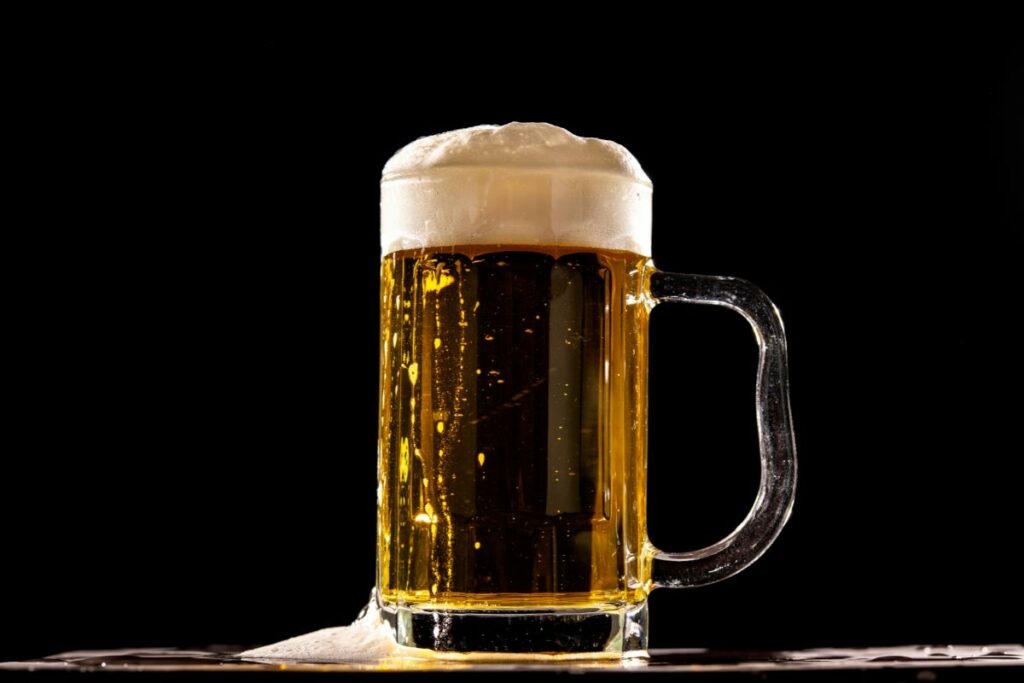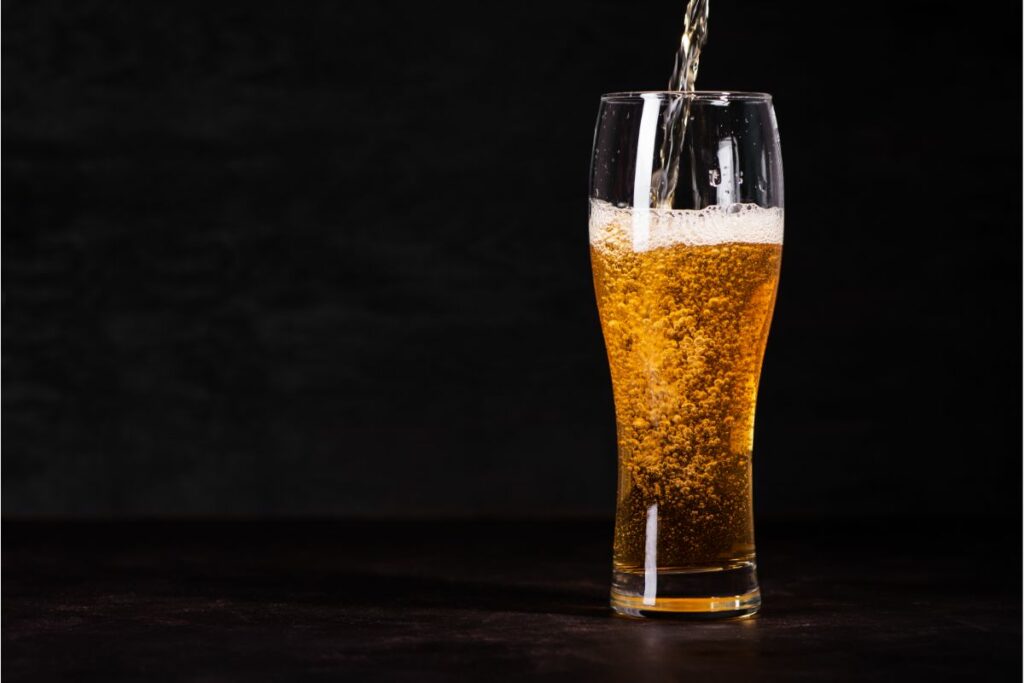Are you currently asking yourself the question “Is beer carbonated?” if you are, then you’ve come to the right place!

If you are a beer lover that wants to learn more about the process of preparing beer, one area that might be of interest to you is the carbonation process of beer.
In this guide, we are going to be taking a closer look at one of the most important aspects of beer production: carbonation!
We are going to be uncovering why it’s important to carbonate beer, how it works as well as why so many brewers opt to do it.
Read on!
Is Beer Carbonated Or Not?
Beer is one of the most popular alcoholic beverages in the world, with a rich and varied history that stretches back thousands of years.
As a result of its impressive popularity, there are many questions and misconceptions about the drink – and whether or not beer is carbonated is one of them.
To cut a long story short, the answer is yes, most beers are carbonated, especially beers that have been developed in recent times.
If you weren’t already aware, carbonation refers to the process of dissolving carbon dioxide (CO2) into a liquid.
When it comes to beer brewing? Well, as you might have guessed, carbonation is an essential part of the brewing process, and there are currently two main methods for carbonating beer: natural carbonation and forced carbonation. Let’s check them out:
Natural Carbonation
The first type of carbonation method used is something known as natural carbonation.
This carbonation method occurs naturally during the fermentation process, which is when yeast consumes sugar and produces alcohol and CO2.
The CO2 that is then produced during fermentation is dissolved into the beer over time, which then creates a natural carbonation.
Fun Fact: This is the method used for traditional English ales and many Belgian beers.
Forced Carbonation
The second type of carbonation process that is used to brew beer is forced carbonation.
This is a recently developed way to carbonate beer, and consists of a process where CO2 is artificially added to the beer, rather than allowing the carbonation to occur naturally.
In order to achieve forced carbonation, it is done by, quite literally, injecting CO2 gas into the beer while using pressure, and is a method that is most commonly used for most modern beers, such as lagers.
What Are The Benefits Of Beer Carbonation?

There are plenty of different benefits that beer carbonation can offer.
Besides being able to elevate the taste of beer with a sparkling, bubbly texture, carbonation can also help to make the experience of drinking beer all that more enjoyable and refreshing.
Still, to give you a better idea of why so many brewers find carbonation to be an integral part of the brewing process, here is quick breakdown of some of the main benefits of carbonating beer:
- Can help to reduce the amount of bitterness: Just ask anyone who has drank flat beer and we’re sure that they’ll tell you that they taste pretty bitter! Even though some people might like the taste of bitterness (especially when it comes to drinking beer) many people prefer their beer to have a more balanced flavor profile, which is why carbonation is so great.
- Has the ability to increase feelings of satisfaction: As you might already know, it is widely accepted that carbonated drinks can have the unique ability to help increase overall feelings of satisfaction after consuming them. Thanks to this, it means that, by opting to drink carbonated beer, you will feel more satisfied once you have finished it!
- Gives beer a light and refreshing taste: Last but certainly not least, the final main benefit that you can expect to get from carbonated beer is the ability to enjoy a light and refreshing taste! This will help to elevate your overall drinking experience, while also leaving you feeling refreshed after you finish it.
Are All Types Of Beer Carbonated?
This is one of the main questions that many beer enthusiasts find themselves asking, especially if they’re interested in trying their hand at brewing their own beer from home.
As we have already touched upon above, the majority of beers typically tend to be carbonated. However, there are a few exceptions to this rule.
The main exception to beer carbonation is cask ale, which is a type of beer that is served directly from a cask, which means that they don’t need to be carbonated.
For example, cask ale is typically found in traditional British pubs and is often served at room temperature.
Another exception to beer carbonation is certain types of sour beers, which are a special type of beer that are made by using fermented strains of yeast and bacteria.
These beers can occasionally become naturally carbonated during the brewing process, but they are often not as bubble as other types of beer.
The main reason for this is simply due to the unique fermentation process used to make these types of beer.
The Bottom Line
You’ve made it to the end of the guide! Now that you have taken the time to read through the above, we hope that we have been able to give you a better understanding of what beer carbonation is, as well as why it is so important to the beer brewing process.
Just to recap all that we have spoken about above, the majority of beers are typically carbonated(see also: How To Carbonate Beer) (except for a few types of beers), and the majority of modern beers tend to be carbonated through the process of forced carbonation.
The carbonation process plays a very important role in the brewing process, and has the ability to not only affect the taste of the beer, but also the appearance of the beer, as well.
Thank you for taking the time to read through this guide, we hope this has been a help!
- StockHouseBrewing.com is being acquired by MomentumBrewHouse.com - October 24, 2023
- MomentumBrewHouse.com Acquires EmpiricalBrewery.com - August 31, 2023
- How Many Calories Are In A Bottle Of Beer? - May 24, 2023
